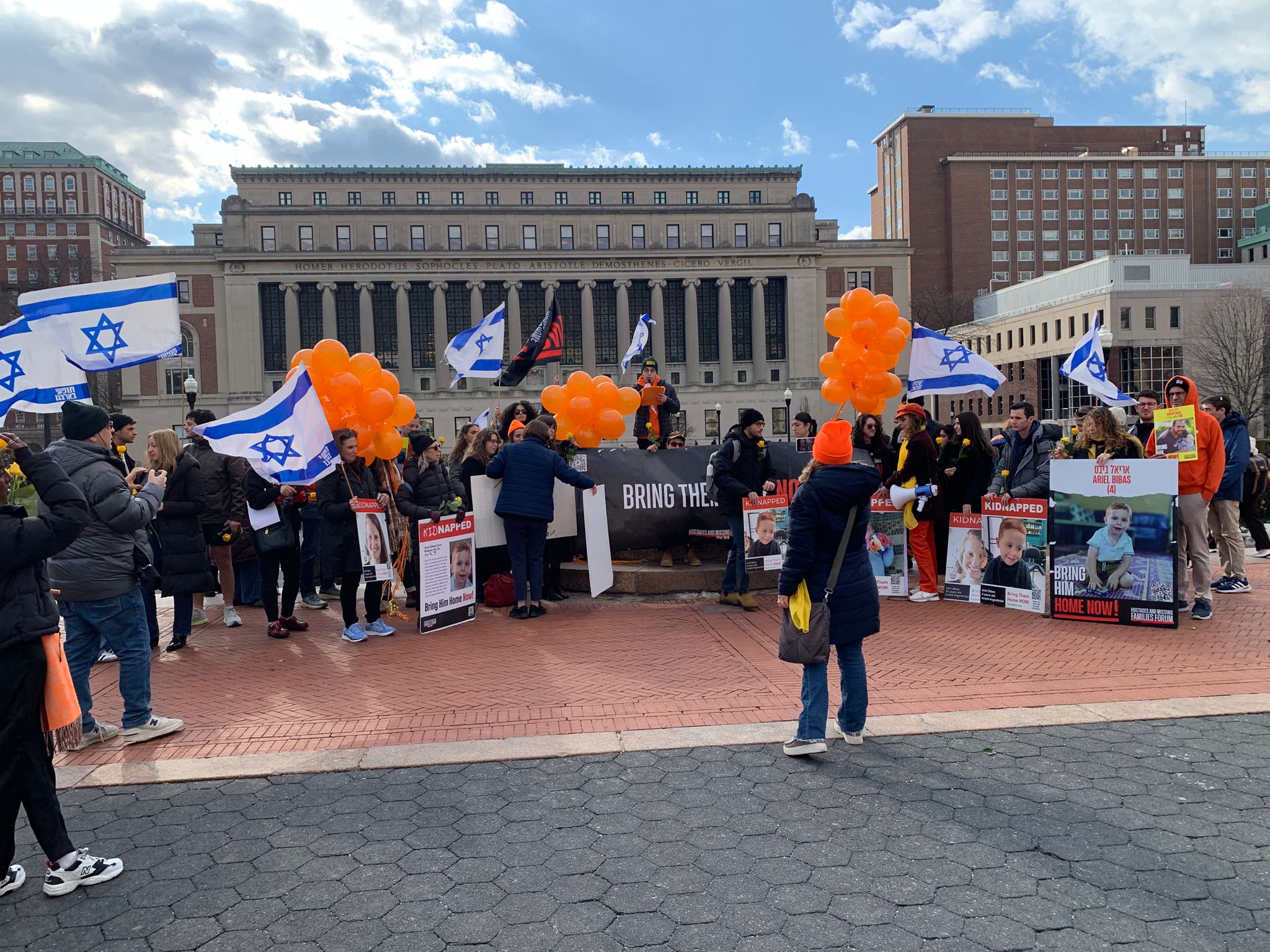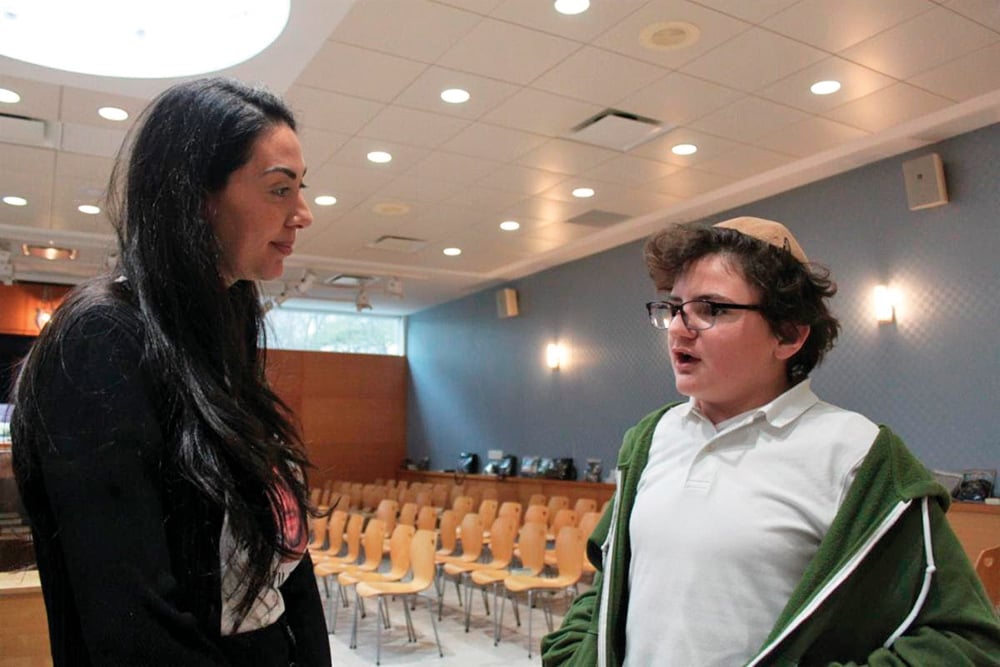The situation was definitely getting ugly. Or, if the situation itself wasn’t getting ugly, then at the very least the students were.
That was the scene confronting Rabbi Efraim Oppenheim at the Nachmanides High School on Lag Ba’omer. Just a little over a month earlier, before the start of Passover, all the male students in his gemara class agreed not to shave in observance of the omer, a period in the Jewish calendar where men refrained from haircuts and from shaving. It was Jewish custom, of course, but just as important to this particular group of boys, it was a bet.
Now it was the 33rd day of the omer, and they were all permitted to shave. So now the bet was coming to an end, and now it was up to Rabbi Oppenheim to decide who had the best beard. Whoever won got a free pizza at Jerusalem Pizzarama II. But more important than the pizza (with any toppings you wanted, and stuffed crust too) were the bragging rights, especially important when you are a senior in high school. Best beard was a serious status symbol.
All 20 boys in the class paraded in front of Rabbi Oppenheim as he sat at his desk. The group could essentially be divided into five groups:
1. Hairless. This was a group of three boys who knew they were beat. They had no beard growth to speak of at this stage in their lives, but Rabbi Oppenheim counseled them not to be discouraged. They were still young, and besides, facial hair was highly overrated.
2. Peach fuzz. This group of five had some hair, but not enough to be a real beard. Though they had no chance of winning, at least they had the consolation of having more hair than the first group. Besides, they didn’t look nearly as bad as group number three, which was known as:
3. The patchy squad. This group of six had some areas of the face that had good growth and some with none. It was kind of like looking at farmland from the window of an airplane. It looked lush, until it didn’t. This was the group most likely planning to shave as soon as possible.
4. The somewhat respectable growth group. These boys, numbering three in total, had enough growth to look like they were growing a beard. They might not be embarrassed walking around in public. Some could claim they were cultivating a particularly trendy type of facial hair growth, like a soul patch, a chin curtain, or mutton chops. Others had a nice equal distribution, though a bit sparse, that could easily fit the category of stubble or a five o’clock shadow.
5. True beard status. This was an impressive group of three boys. Although Rabbi Oppenheim had always believed that it took at least six weeks to grow a full beard, and his own beard had taken many months (he had been told he looked like President Rutherford B. Hayes, if that helps at all), these boys had truly outdone themselves. Yehuda Stern had a nice Abraham Lincoln thing going on (some might say Captain Ahab). Manny Behar looked like he could have played on the Boston Red Sox during one of their playoff runs. And Dan Yanowitz looked like he had just been plucked out of Amish country in Pennsylvania. All three were quite proud of their beards, as well they should have been.
Rabbi Oppenheim gathered the class together for the results of the judging. Everyone in the room sat stroking their beards as he spoke, even those who did not have one.
“As per our agreement, before I announce the winners, we are going to review the laws of omer. I assume you all went through the source material I gave you.”
Everyone in the room muttered to the affirmative. It is very hard to motivate a group of high school students to study after Passover in their senior year, but Rabbi Oppenheim thought this strategy was working.
“Anyone who doesn’t know an answer is disqualified from the beard contest. Agreed?”
Again, all the students grunted in agreement.
“OK, and away we go. Jeremy, what is the source of sefirat ha-omer, and what is it talking about?’
“I got this, Rabbi O.,” Jeremy said. “The source of counting the omer is from parshat Emor in Vayikra. On the second day of Pesach in the days of the Beit Hamikdash, during the start of the barley harvest in Israel the farmer brings his first sheaves of barley to the Temple to thank G-d for the harvest. Then he counts 49 days and then presents another offering at the Beit Hamikdash at the height of the barley harvest.”
“Excellent. Harvey, what does all this have to do with the holiday of Shavuot?”
“Funny you should ask, Rabbi,” Harvey said. “Although the Torah doesn’t specifically mention Shavuot in relation to the harvest, we know that it is celebrated on the 50th day after Pesach. So we count the seven weeks from leaving Egypt to receiving the Torah on Mount Sinai.”
“Good job, Harvey. I might add that while Pesach celebrates our liberation from slavery, Shavuot marks the goal of our liberation, namely the acceptance of the law on Har Sinai and our commitment to Hashem. That’s why we count from one to the other, to link the two spiritually.
“Stuart, what does any of this have to do with not shaving?”
Stuart looked at Rabbi Oppenheim with a blank stare.” Um, so that we look totally gnarly when we reach Mount Sinai?”
“Buzz. Stuart, you are officially disqualified from the beard contest.”
A collective groan rose from the room.
“Not that he had much of a chance of winning anyway,” someone called out.
“Richie, same question.”
“Excellent question, Rabbi O. In the time of the Mishna, 24,000 students of Rabbi Akiva died in a plague during the period between Pesach and Shavuot. According to the gemara it happened because they did not honor one another properly. As a sign of mourning for their deaths, we don’t cut our hair or shave.”
“Correct. Chaim, are there any other signs of mourning that we practice at this time?”
“There certainly are, Rabbi O. Along with not shaving or getting a haircut, we do not get married, we do not listen to live instrumental music, and we try not to wear new clothing.”
“Solid work, Chaim. With the exception of Stuart, you all passed the test. And now, without further ado, let’s get to the winner of the contest. May I have a drum roll, please.”
Everyone drummed on their desks.
The winner of the Lag Ba’omer annual beard contest for this year goes to…Manny Behar!”
The crowd went wild. Manny was picked up on everyone’s shoulders and carried around the room. It really did look like a Red Sox victory celebration.
“And tonight when you go home, since today is Lag Ba’omer, you are all cleared to shave.”
“Rabbi O., can we keep our beards for longer if we want to?” Manny asked. “This is a serious time of mourning, and truth be told, I really like it.”
“Ashkenazic Jews stop the mourning today, while some Sephardic Jews wait until tomorrow. I have read that the custom of the Gaon of Vilna was to go all the way until Shavuot, but I would say that after tomorrow, the mourning period is over. Then it’s just between you and your parents.”
“Bummer,” Manny said, and most of the boys in the room seemed to be in agreement.
“I have just one last thing to show you before we’re done with class for today,” Rabbi Oppenheim said. “I just want you to know that there’s still hope for all of you.” He reached into a folder on his desk and pulled out a picture. It looked like Rabbi Oppenheim’s high school graduation picture, and instead of his magnificent facial hair, he had the ever so slightest hint of peach fuzz.
The groan in the room was one of the best Rabbi Oppenheim had ever heard.
“Now go home and shave.”
Larry Stiefel is a pediatrician at Tenafly Pediatrics.
By Larry Stiefel













